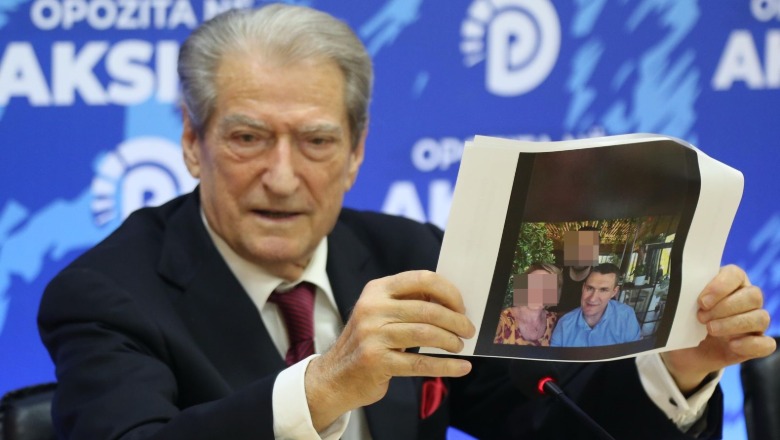Berisha attempt to intimidate SPAK Chief draws broad condemnation

Sali Berisha has come under fire after displaying a photograph of SPAK Chief Altin Dumani’s wife during a press conference on Friday. The image, taken at a family gathering, was published to prove Dumani’s alleged connections to Tirana Mayor Erion Veliaj. According to Berisha, the supposed evidence of this connection was the fact that a relative of Dumani’s wife works as an employee in the Municipality of Tirana.
Why is this important: The move has been widely condemned, particularly as Dumani and his family are under strict protection due to ongoing threats due to his work against corruption and organized crime. Critics argue that targeting the family of a judicial official, especially a private citizen, crosses ethical and legal boundaries.
Context: Berisha is currently on trial for corruption following an investigation by SPAK. The publication of the photo has been interpreted as a clear message of intimidation against Dumani, signaling Berisha’s readiness to resort to personal attacks to undermine judicial authorities.
This is not the first time Berisha has resorted to such tactics. During the investigation into the January 21, 2011, killings of four protesters, he launched a relentless campaign against then-Attorney General Ina Rama. Berisha publicly branded her a “boulevard whore” for investigating the killings and accused her, along with then-Opposition Leader Edi Rama and President Bamir Topi, of orchestrating a coup against him.
To substantiate these accusations, Berisha established a parliamentary commission of inquiry, while Ina Rama, his own appointee as Attorney General, became the target of relentless personal attacks. This pattern of behavior, including defamation and threats against family members of judicial figures, has been a hallmark of Berisha’s approach to confronting legal challenges.
A broader pattern: Berisha’s alleged intimidation of Dumani reflects a broader history of conflict with Albania’s judicial institutions. Over the past three decades, he has been accused of systematically using personal attacks, public defamation, and political influence to shield himself from accountability.
One of the most infamous examples was during the January 21 investigation, when Berisha’s government erased CCTV footage from the Council of Ministers and prevented police from executing arrest warrants for members of the Republican Guard. These actions remain emblematic of his interference in justice processes.
The latest incident comes at a critical time for Albania’s judicial reform. SPAK continues to investigate high-level corruption, including cases involving figures like Berisha and ironically, the Mayor of Tirana.
What’s next: It remains to be seen whether Berisha will face any consequences for his actions. Until now, justice institutions have been poignantly silent and inactive – besides the odd general statement about the need for an independent justice – despite Berisha’s repeated threats, insults and calls to violence against judges, prosecutors, journalists, political rivals, diplomats and police officials.


